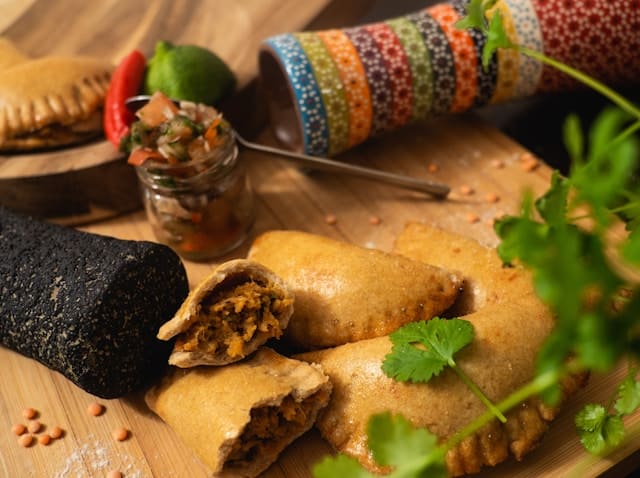
What is the best type of natural stone for UK kitchen countertops in high humidity areas?
Kitchens have always been the heart of a home, displaying a blend of function and design. An essential part of this space is the countertop, which significantly influences the overall aesthetic. There are numerous material options to choose from, such as granite, marble, quartz, and wood. The selection, however, must be made judiciously, considering the weather conditions of the area. For the United Kingdom, where high humidity levels are commonplace, certain materials fare better than others. So, let's explore these optimal choices in further detail.
Granite: The Timeless Choice
Granite has been a go-to countertop material for years, and it's not hard to see why. This natural stone boasts remarkable robustness, making it capable of withstanding high humidity environments like kitchen worktops in the UK.
Avez-vous vu cela : What are the most energy-efficient small kitchen appliances in the UK for 2023?
Granite countertops are incredibly tough and resistant to scratches and high temperatures. They also have a low porosity, which means they will not absorb water easily and are thus remarkably resistant to staining. These qualities make them an ideal choice for kitchens in areas with high humidity.
Granite also offers a wide range of colour and pattern options, allowing you to customise your kitchen design to your preferences. The unique veining and speckling in each slab of granite provide a distinct, one-of-a-kind look that can add sophistication and elegance to any kitchen.
A découvrir également : Easy and quick recipes for flavorful meals in minutes
Quartz: The Practical Alternative
Quartz is a man-made stone that combines natural quartz with polymer resins, creating a sturdy and non-porous surface. It's an excellent option for countertops in high humidity areas as it can resist water absorption better than most other materials.
One of the major benefits of quartz countertops is their non-porous nature, which means they're resistant to staining and won't harbour bacteria or viruses. This makes quartz an incredibly hygienic choice for your kitchen.
In terms of design, quartz offers a wide array of colours and patterns. Whether you prefer a look that mimics natural stone or a more contemporary design, quartz has a style to match. Its consistency in pattern also guarantees a cohesive look across the entire countertop, a feature that many homeowners appreciate.
Marble: The Epitome of Luxury
Marble countertops are renowned for their stunning beauty and elegance. The natural stone is a sophisticated choice for any kitchen, adding undeniable luxury and charm. However, when it comes to high humidity areas, marble requires careful consideration.
Marble is a porous material, meaning it can absorb water over time. This can lead to staining and etching, which can compromise the appearance of the stone. However, with regular sealing and proper care, marble can still be a viable option for kitchen worktops in high humidity areas.
Despite the maintenance, many homeowners are drawn to marble for its timeless beauty. The stone’s natural veining and wide range of colours make each slab unique. If you’re willing to put in the effort for upkeep, marble can be a stunning addition to your kitchen.
Wood: The Warm Option
While not a stone, wood is a classic choice for kitchen countertops, offering a warm, natural feel. However, wood surfaces can be quite sensitive to water and humidity, making them a less common choice for high humidity areas.
Wood countertops require regular maintenance, including oiling to prevent water absorption and potential damage. However, should they encounter scratches or dents, they can be easily sanded and refinished.
Despite this, many individuals are drawn to wood for its alluring rustic charm. It provides a warm and inviting feel to the kitchen, and with a wide variety of wood types available, there's a style to suit every design preference.
Solid Surface: The Durable Choice
Solid surface countertops, made from a blend of acrylic or polyester resins, offer a durable and versatile option for kitchen countertops. They’re incredibly resistant to moisture, making them an excellent option for high humidity areas.
Solid surface countertops are non-porous, so they won’t absorb water and are resistant to stains. They also have the added benefit of being seamless, meaning there are no crevices where bacteria or mould can grow.
In terms of design, solid surfaces offer a plethora of options. They're available in a wide array of colours and patterns and can even mimic the appearance of natural stones such as marble or granite.
All in all, the decision will ultimately come down to your personal preference and lifestyle. Carefully consider the specific characteristics of each material, think about how much maintenance you're willing to undertake, and most importantly, choose a countertop that will make your kitchen a space you love.
Limestone: The Eco-friendly Option
Limestone is a natural stone commonly chosen for its rustic appeal and warm, earthy tones. Although often overlooked in comparison to granite or marble, limestone is an excellent material for kitchen worktops in high humidity areas of the UK. It is particularly popular for those seeking to create an outdoor kitchen, as its natural tones blend well with the surrounding landscape.
Primarily comprising calcium carbonate, limestone is known for its exceptional durability and longevity. It can resist heat and humidity, thus reducing the chances of wear and tear. However, as a porous stone, it does require regular sealing to prevent water absorption and staining.
In terms of aesthetics, limestone offers a more subtle and understated beauty compared to other natural stones. Its colour palette ranges from sandy beige to greyish blue, each slab unique in its variation. This makes limestone an excellent option for those seeking a naturally inviting yet understated kitchen countertop.
Despite its more muted aesthetics, limestone can compete with other stone worktops in terms of functionality. It's easy to clean, and its porous nature can be countered with regular maintenance. However, if you're not willing to commit to this upkeep, you may want to consider a less porous countertop material.
Stainless Steel: The High-functioning Option
Stainless steel is another material that could be an excellent choice for kitchen countertops, particularly in outdoor worktops exposed to high humidity conditions. Unlike natural stones, stainless steel is non-porous and highly resistant to the corrosive effects of water and humidity. It doesn't require any sealing or special maintenance, making it a practical choice for those seeking an easy clean solution for their kitchen.
One of the key advantages of stainless steel is its seamless design. Without any joints or crevices, it leaves no room for bacteria or mould to grow. This feature makes it particularly appealing for those conscious of hygiene in their kitchen.
In terms of aesthetics, stainless steel lends a sleek, modern look to any kitchen. It can seamlessly blend with various kitchen styles, from rustic to contemporary. Despite its industrial feel, stainless steel can add a touch of elegance and sophistication to your kitchen worktop.
The enduring popularity of stainless steel countertops can be attributed to their durability, easy maintenance, and timeless appeal. Whether it’s used for indoor kitchen countertops or outdoor worktops, stainless steel remains a dependable choice in high humidity areas.
Conclusion
Choosing the right material for your kitchen countertops, particularly in high humidity areas like the UK, is crucial. The decision isn't just about picking a aesthetically pleasing stone or surface, but also considering its functionality, durability, and maintenance requirements.
Whether you opt for the elegance of marble, the durability of granite, the versatility of quartz, the warmth of wood, the eco-friendliness of limestone or the functionality of stainless steel, your choice will significantly influence the look and feel of your kitchen. It is important that you choose a countertop material that suits your lifestyle, budget, and aesthetic preferences.
Remember, each material has its unique characteristics, and what works in one kitchen might not work in another. Take the time to explore the various options, consider their pros and cons, and make an informed decision that you will be happy with for years to come. After all, your kitchen is the heart of your home, and your countertop is a significant part of it. Choose wisely and enjoy the beauty and functionality of your ideal kitchen worktop.
